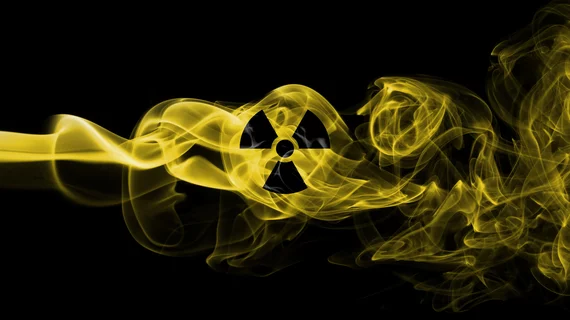Medical isotope shortage looms as 'unplanned' outage halts Mo-99, Lu-177 production
Medical isotope production was halted this week after a water leak was discovered in the reactor beam cooling system of the high flux reactor (HFR) in Petten, the Netherlands, according to an alert from the Society of Nuclear Medicine and Molecular Imaging (SNMMI). The "unplanned" outage is expected to impact the near-term supply of isotopes used during many medical imaging exams.
This shutdown impacts the world supply of molybdenum-99 (Mo-99) and lutetium-177 (Lu-177), medical isotopes used nuclear imaging.
As of Jan. 24, the Nuclear Medicine Europe Emergency Response Team is still unaware of the initial source of the leak. Additional inspections will be carried out this week to determine what actions will be needed to resume production.
According to a statement released by Nuclear Medicine Europe, the HFR does not pose a risk to workers or the public but will remain on standby status as a safety precaution while the cause of the leak is further investigated.
“Targets were scheduled to be irradiated in the HFR reactor for both Mo-99 and Lu-177 production and the delayed restart will impact the supply of these radioisotopes in the coming week(s),” the statement reads. “Medical institutions should contact their radioisotope suppliers to determine the specific impact on their orders.”
As the timeline for the repair remains unclear, medical facilities should be prepared to deal with a near-term radioisotope shortage, according to the alert.
An update on the situation is expected on Jan. 31 or earlier if information becomes available sooner.
For more information, click here.
Related Radiotracer Isotope Shortage News:
Netherlands nuclear reactor has resumed operations after unplanned outage
University's research reactor increases medical isotope production in wake of supply disruption
Texas A&M University to lead isotope R&D trainee program with $2 million grant
University's research reactor increases medical isotope production in wake of supply disruption
One chemistry professor's role in increasing radioisotope production in the U.S.
NorthStar breaks ground on isotope facility, moves toward doubling domestic Mo-99 supply
Isotope update: Target date for resuming production of Mo-99 still unclear
Wisconsin company to begin producing medical isotopes next year
Isotope shortage update: Target restart date for downed reactor has been set
Medical isotope update: Shortage expected to last weeks as nuclear reactor remains sidelined
Nuclear reactor in Poland steps up to address Mo-99 shortage
Medical imaging isotope producer Shine finalizes merger with fusion technology specialist
SHINE gains exclusive license for Lu-177 radioisotope production

